Apricot for Babies – Health Benefits and Recipes

Apricots are known for their amazing taste and their resemblance to peaches. When compared, apricots boast a tart flavour, while peaches have a sweet taste. Apricots for babies are hugely favoured when introducing them to solids. This fruit is a rich source of beta-carotene, lutein, antioxidants, fibre, and vitamin C, and have plenty of health benefits. Additionally, they contain polyphenols, mono- and polysaccharides, fatty acids, carotenoids, and all the good ingredients that promise a healthy body and a sound mind (1). But is this wonder fruit good for babies? Apricots can be consumed fresh and dried. If not fresh, are dried apricots for babies safe? Apricots are among the top stone fruits that are loved as the harbingers of summer. Let’s learn about their safety and suitable usage for babies in the following post.
When to Introduce Apricots to Infants?
Apricots can be great finger food or can be given as a puree when a baby reaches the 6-month mark when they are ready enough to start with solids (2). However, if one wishes to, you can introduce apricot to your baby from as early as 4 months, but before you do so remember to consult a paediatrician.
Nutritional Value of Apricots
The fruit is fragrant, juicy when ripe and full of nutrients, minerals, and vitamins.
Nutritive value of 100 grams of fresh apricot:
| Nutrition | Amount |
| Calories | 48 kcal |
| Carbohydrates | 11 g |
| Protein | 1.4 g |
| Fibre | 2 g |
| Fat | 0.4 g |
| Vitamin A | 180 ug |
| Vitamin B6 | 0.054 mg |
| Vitamin C | 10 mg |
| Vitamin E | 0.089 mg |
| Vitamin K | 3.3 ug |
| Calcium | 13 mg |
| Iron | 0.39 mg |
| Magnesium | 10 mg |
| Phosphorus | 23 mg |
| Potassium | 259 mg |
| Sodium | 1 mg |
| Zinc | 0.20 mg |
Nutritive value of 100-gram Dried Apricot
| Nutrition | Amount |
| Calories | 241 kcal |
| Carbohydrates | 63 g |
| Protein | 3.4 g |
| Fibre | 7 grams |
| Fat | 0.5 g |
| Vitamin A | 180 microgram |
| Vitamin B6 | 0.143 mg |
| Folate (B9) | 10 microgram |
| Vitamin C | 1 mg |
| Vitamin E | 4.33 mg |
| Vitamin K | 3.1 microgram |
| Calcium | 55 mg |
| Iron | 2.66 mg |
| Magnesium | 32 mg |
| Phosphorus | 71 mg |
| Potassium | 1162 mg |
| Sodium | 10 mg |
| Zinc | 0.29 mg |
Benefits of Apricots for Your Baby
Let’s talk about some must-know apricot benefits for babies:
1. Boost immunity
Apricots are loaded with Vitamin A, which helps enhance the vision of a baby, and antioxidants and anti-inflammatory properties that strengthen the immune system. They also contain Vitamin C and E, so giving apricots to your baby will boost his immunity and shield him from colds, coughs, and sicknesses.
2. Help in clearing bowels
Giving apricots to a baby can provide him with relief from constipation. The dietary fibre present in the fruit helps in bowel movement. Giving six to eight portions of this fruit to your little one keeps the gut healthy and can provide him relief from constipation, as apricot contains pectin and cellulose that acts as a mild laxative. One such popular variety is Japanese apricot, which helps relieve constipation (3).
3. Promote the health of the heart
Apricots help reduce bad cholesterol and increase good cholesterol, making your baby’s heart healthy. Moreover, the potassium content in apricots helps balance the electrolyte levels in the body, thereby keeping the heart muscles in order.
4. Treat infections
Apricots are a rich source of Vitamin A, which helps in destroying the eggs of the intestinal worms. Vitamin C present in this fruit also makes the body immune and provides resistance to fight all kinds of parasitic infections. Moreover, the fibre present in the fruit helps eliminate the worms and waste through easy bowel movement.
5. Help in brain development
Apricots contain a good amount of magnesium and potassium; these minerals help in the overall brain development of babies.
6. Cure fever & skin rashes
Apricots have anti-inflammatory properties which help in curing fever and skin problems in babies. Mix apricot juice with water and add a teaspoon of honey to it, stir nicely and give it to the baby to cure fever, cold, cough, and skin rash.
7. Cure respiratory disorders
Since apricot oil is anti-inflammatory and has expectorant qualities, it can prevent and even cure respiratory disorders like asthma in children. All you need to do is massage your child with the oil.
Side Effects of Apricots on Infants
Although apricots are irresistible and healthy, there are some possible side effects that can impact babies. Before introducing any fruit or vegetable to babies, it’s important to learn about their benefits as well as side effects.
1. Allergies
Apricot allergies are common and can be linked to birch pollen or peach allergies, leading to Oral Allergy Syndrome (OAS). People with apricot allergies may also react to apples, cherries, plums, and certain nuts like hazelnuts and walnuts. Avoid apricots if you have these allergies
2. Gastrointestinal Issues
Apricots are high in FODMAPs, which may cause gas, bloating, flatulence, and diarrhoea if eaten in large quantities (4). If your baby is breastfed and shows signs of colic, you may want to monitor your apricot intake (5).
3. Sulfite Sensitivity
Dried apricots often contain sulfite preservatives, which can trigger allergic reactions in some people (6) (7).
How to Choose Apricots for Your Baby?
Note these points before you buy apricots for your baby.
1. Dried Apricots
- Buy organic dried apricots.
- If you are not buying organic apricots, then make sure there is no sulphur dioxide used to retain the orange colour in non-organic apricots (8). Sulphur dioxide can cause allergies and respiratory problems in babies (9).
- Organic apricots are darker than non-organic ones, so the darker, the better.
2. Canned Apricots
- Choose canned apricots which are not dipped in syrup because that would be too much unwanted sugar for your baby.
- If buying canned apricot fruit juice, go for the one which does not have sugar.
3. Fresh Apricots
- Look for the ones that have a golden colour and are firm.
- Avoid buying apricots that are pale yellow or greenish-yellow.
- Apricots which are very soft and mushy or look shrivelled should not be bought.
How to Store Apricots for Baby Food?
Here are a few tips to store apricots:
- Keep it in the refrigerator to avoid over-ripening of the fruit. In this way, you can keep it fresh for a week.
- If you have left-over of the mashed apricot or puree, refrigerate it in non-BPA containers for 3-4 days.
Do You Need to Peel Apricots for Your Baby?
There is no real need to peel an apricot before giving it to your baby as finger food or even making a puree of it. The peel of the fruit is velvety in texture and absolutely edible. However, if you do not want your baby to eat the fruit with the outer cover, you can peel it. The easiest way is to put the fruit in boiling water for some time and then dip it in ice water. This procedure will loosen the peel and help it to come off easily.
How to Give Apricots to Babies?
Before serving apricots to babies, it is important to learn about how to prepare dried apricots for baby as well as fresh apricots for babies. Babies have milestones in which they achieve develop different reflexes and skills, including chewing and swallowing. It is advised to consult your doctor on side to learn about the baby milestones.
1. For 6+ Month Old
For 6-month-old babies, offer a very ripe and mashable apricot cut in half with the skin on. The fruit should be ripe enough to be squished with thumbs and fingers. If your little one is unable to hold the apricot at this age, don’t worry. Introduce the fruit slowly and steadily by introducing it in mashes, purees, or adding it in the yogurt or porridge.
2. For 9+ Month Old
At the age of 9 months, give your baby thin slices of the pitted, soft, and mashable apricot. Make sure to leave the skin on. Offering them bite-sized fruit at this stage might not be feasible if you are allowing them to use their fingers to scoop up the fruit, as it can be slippery.
3. For 12+ Months
Continue offering thinly sliced or halved ripe apricots. At 12 months, you can start with their biting skills. If your cutie patootie tries to eat the entire half in one go, observe them and give them time to work with it and help them. Stay with them until they swallow their food. Alternatively, you can cut the ripe apricot into bite-sized pieces and serve them with a pre-loaded fork.
4. For 18+ Months
At this age, you can readily serve ripe, soft apricots in halves, slices, or bite-sized pieces. You can also offer whole dried apricots (with the pit removed) if your child has developed the necessary biting, tearing, chewing, and swallowing skills. Since dried fruit can be a choking hazard, trust your instincts and wait until you feel confident your child is ready. Teach them how to take small bites.
5. For 24+ Months
Now that your child is well-versed in chewing, biting, and swallowing, they are ready to have the whole apricot. If you’re comfortable, you can offer a whole apricot at this stage. Eat one alongside your child to demonstrate how to bite into it while avoiding the pit. Take a few bites, then show your toddler the hard pit inside. Tap it with your finger and explain, “I am eating around this hard part.” If they accidentally put the pit in their mouth, immediately and carefully remove the pit from the mouth without panicking. You can also demonstrate to them how to spit the pit from the mouth so they also learn to follow the course.
How to Cook Apricots for Baby Food?
Baking apricots are one way to cook them. You need to cut apricots into two halves, remove the seed and keep the cut side down in a baking dish filled with about 1 inch of water. Bake at a temperature of 400°F until the fruit becomes soft.
The other way is by steaming the apricots or putting the fruits in boiling water for a few minutes. After taking the apricots out from the water, run them under cold water and the skin of the fruit easily gets peeled. You can either cut them lengthwise and give your baby as finger food or mash it up roughly and feed her using a spoon.
Can Apricots Cause Allergies in Babies?
Apricot allergy is rare, but it does happen (10) (11). In case your baby is allergic to apricots, the tongue, lips, face, or throat swells, and there may also be a tingling sensation in the mouth. Some children may also suffer severe respiratory problems called anaphylaxis. Sulphites found in dried apricots can cause asthma. If your baby has a birch pollen allergy, eating apricots may cause Oral Allergy Syndrome (12). Additionally, being allergic to almonds and other fruits in the Rosaceae family, like pear, apple, pear, peach, cherry, and nectarine, may also pose an allergic threat to babies eating apricots (13) (14).
Even babies who have had apricots without any problems earlier can suddenly suffer symptoms like itching and irritation of the mouth and throat. However, the symptoms usually subside on their own in most cases of this kind of allergy. In a few cases, the symptoms may persist and aggravate to something severe, such as anaphylaxis.
We may also come across some children who may suffer from colic after eating apricots. However, this is not because of an apricot allergy, it is a sign of intolerance to apricots. It only means that your baby is unable to digest apricots.
Precautions to Take While Giving Apricots to Infants
Listed below are some precautions that you should take before introducing an apricot into your baby’s diet.
- A time gap of about a week to two weeks is mandatory in between introducing a new food. By doing so, you will know whether your baby is allergic to a certain food or not. In case of an apricot allergy, the baby will show signs like swelling of the face, tongue, lips, and throat, and tingling sensation of the mouth, and in case of apricot intolerance, the baby may suffer from loose motion or constipation, nausea, stomach ache, bloating and uneasiness.
- If you have kept mashed apricot or puree in the freezer, wait until it thaws and gets back to the room temperature. You should refrain from giving babies anything straight out of the freezer. It is best to give fresh fruit to your baby instead of giving stale fruits.
- Nowadays, every fruit that we buy from the market is mostly grown with the help of pesticides. Therefore, it is imperative to not just wash the fruit in running water but also keep it dipped in water for a good half an hour or more before giving it to your little one.
- Always give ripe apricots to your baby since unripe ones give out toxins which may cause health problems to your baby.
- To retain its orange colour, dried apricots are treated with sulphur dioxide which can be toxic to the baby. Therefore, before giving dried apricots to your baby, always soak it in water for at least half an hour.
Apricot Recipes for Babies
If you are wondering how to make baby food with Apricots, here are some simple recipes you can try.
1. Apple and Dried Apricot Puree
Dried apricots are loaded with antioxidants, nutrients, and minerals, and when apples are mixed with them, they make for a wholesome meal.
Appropriate for Age
Six months and above
Ingredients
- Apricots (dried and soaked in warm water)
- Apples (peeled)
How to Make
- Cut dried apricots and peeled apples into small pieces.
- Boil it in water until it becomes soft.
- Now, put it in a processor and blend to make a puree.
2. Fresh Apricot and Banana Puree
Puree made of fresh apricots and bananas is extremely nutritious, and babies will love it.
Appropriate for Age Group
Six months and above
Ingredients
- Fresh apricots
- Banana
How to Make
- Cut an apricot in two halves.
- Boil it in water for a few minutes.
- Once it is soft and mushy, take it out and peel the skin.
- Blend both the fruits in a blender, and your puree will be ready.
3. Mango Apricot Smoothie
Mango and apricot blended together with coconut milk make for a delicious and nutritious smoothie.
Appropriate for Age Group
Eight months and above
Ingredients
- A mango
- Dried apricot
- Coconut milk
How to Make
- Peel and cut the mango in a blender.
- Soak the dried apricots in warm water for at least half an hour and cut them into small pieces.
- Put all the ingredients in a blender and blend them together.
FAQs
1. Do apricots pose a choking hazard for babies?
Yes, since apricots contain a hard pit inside and the ripe ones are soft and slippery, they may pose a choking hazard for babies if not handled properly. Make sure to supervise your baby when you serve them apricots to eat.
2. Can I give dry apricots to my baby?
Dried apricots pose a shocking threat to babies who have not fully developed biting, chewing, and swallowing skills (15). As they are a little bit difficult to chew, you should only introduce them to dried apricots when they are around 18 to 24 months old enough to chew and swallow. Alternatively, you can serve them dried apricots in the form of puree by boiling or steaming them.
3. Do I need to cook apricots to serve babies?
It is not necessary to cook or boil apricots, although you can. You can serve fully ripe and deseeded soft apricots to your six months and above baby or cook them to make puree or mash for your little one.
Apricots are one of the best and most nutritious “first weaning foods” for babies. They are also a superb finger food which may be given to babies from the 6thmonth mark. However, precaution should be taken before introducing the fruit to a baby since some may be allergic to it and some may be intolerant towards the fruit.
References/Resources:
1. Orhan. I. E, et al.; Insights into research on phytochemistry and biological activities of Prunus armeniaca L. (apricot); Food Research International; https://www.researchgate.net/publication/232407403_Insights_into_research_on_phytochemistry_and_biological_activities_of_Prunus_armeniaca_L_apricot; June 2011
2. Starting Solids; American Academy of Pediatrics; https://www.healthychildren.org/English/ages-stages/baby/feeding-nutrition/Pages/Starting-Solid-Foods.aspx
3. Yang. X. J, Zhang. M, et al.; Epidemiological study: Correlation between diet habits and constipation among elderly in Beijing region; World Journal of Gastroenterology; PubMed Central; https://www.ncbi.nlm.nih.gov/pmc/articles/PMC5075555/; October 2016
4. Magge. S, Lembo. A; Low-FODMAP Diet for Treatment of Irritable Bowel Syndrome; Gastroenterology & Hepatology (N Y); PubMed Central; https://www.ncbi.nlm.nih.gov/pmc/articles/PMC3966170/; November 2012
5. Diet, Breastfeeding, and Colic; University of Michigan Health; https://www.mottchildren.org/health-library/hw31265
6. Taylor. S. L, Bush. R. K, et al.; Sensitivity to sulfited foods among sulfite-sensitive subjects with asthma; J Allergy Clin Immunol.; PubMed; https://pubmed.ncbi.nlm.nih.gov/3379229/; June 1988
7. Vally. H, Misso. N. L; Adverse reactions to the sulphite additives. Gastroenterology & Hepatology from Bed to Bench; PubMed Central; https://www.ncbi.nlm.nih.gov/pmc/articles/PMC4017440/; 2012
8. Food Safety Focus; Centre for Food Safety; https://www.cfs.gov.hk/english/multimedia/multimedia_pub/multimedia_pub_fsf_175_01.html
9. 14 Ingredients Linked to Allergies and Intolerances; Food Standards Scotland; https://www.foodstandards.gov.scot/downloads/FSS_Allergy_Poster.pdf
10. Karakaya. G, Kalyoncu. A. F; Allergy to grapes. Ann Allergy Asthma Immunol.; PubMed; https://pubmed.ncbi.nlm.nih.gov/10719786/; February 2000
11. Marzban. G, Herndl. A, et al.; Identification of four IgE-reactive proteins in raspberry (Rubus ideaeus L.); Mol Nutr Food Res.; PubMed; https://pubmed.ncbi.nlm.nih.gov/18683824/; December 2008
12. Oral Allergy Syndrome (OAS) Defined; AAAAI; https://www.aaaai.org/tools-for-the-public/allergy,-asthma-immunology-glossary/oral-allergy-syndrome-(oas)-defined
13. Inomata. N; Gibberellin-regulated protein allergy: Clinical features and cross-reactivity; Allergology International
Volume 69, Issue 1; https://www.sciencedirect.com/science/article/pii/S1323893019301716; January 2020
14. Jiang. N, Yin. J, Mak. P, Wen. L; Occupational Allergy to Peach (Prunus persica) Tree Pollen and Potential Cross-Reactivity between Rosaceae Family Pollens; Iran J Allergy Asthma Immunol.; PubMed; https://pubmed.ncbi.nlm.nih.gov/26742437/; October 2015
15. Early years food choking hazards; Food Standards Agency; https://foundationyears.org.uk/files/2021/09/Early-Years-Choking-Hazards-Table_FINAL_21-Sept-2021.pdf
Guava for Babies
Peaches for Infants
Pineapple for Babies
Chikoo (Sapota) for Infants
Was This Article Helpful?
Parenting is a huge responsibility, for you as a caregiver, but also for us as a parenting content platform. We understand that and take our responsibility of creating credible content seriously. FirstCry Parenting articles are written and published only after extensive research using factually sound references to deliver quality content that is accurate, validated by experts, and completely reliable. To understand how we go about creating content that is credible, read our editorial policy here.






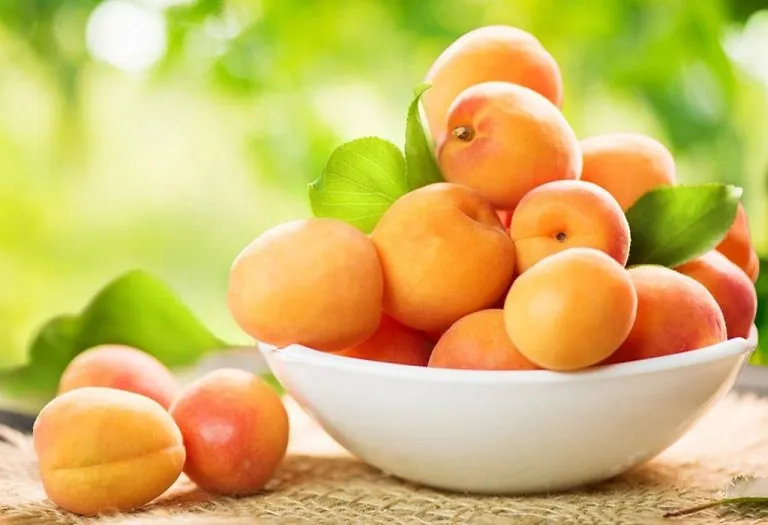
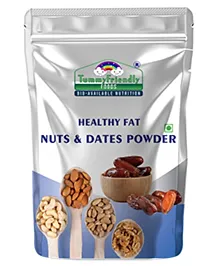

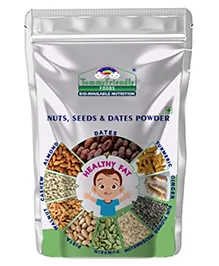
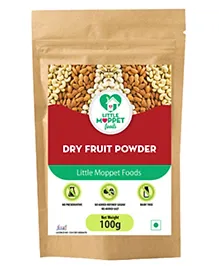
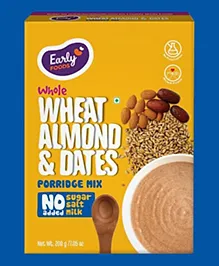

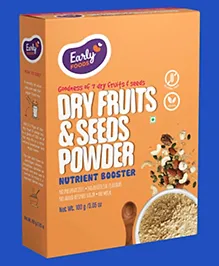

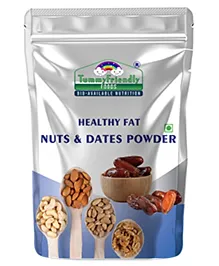
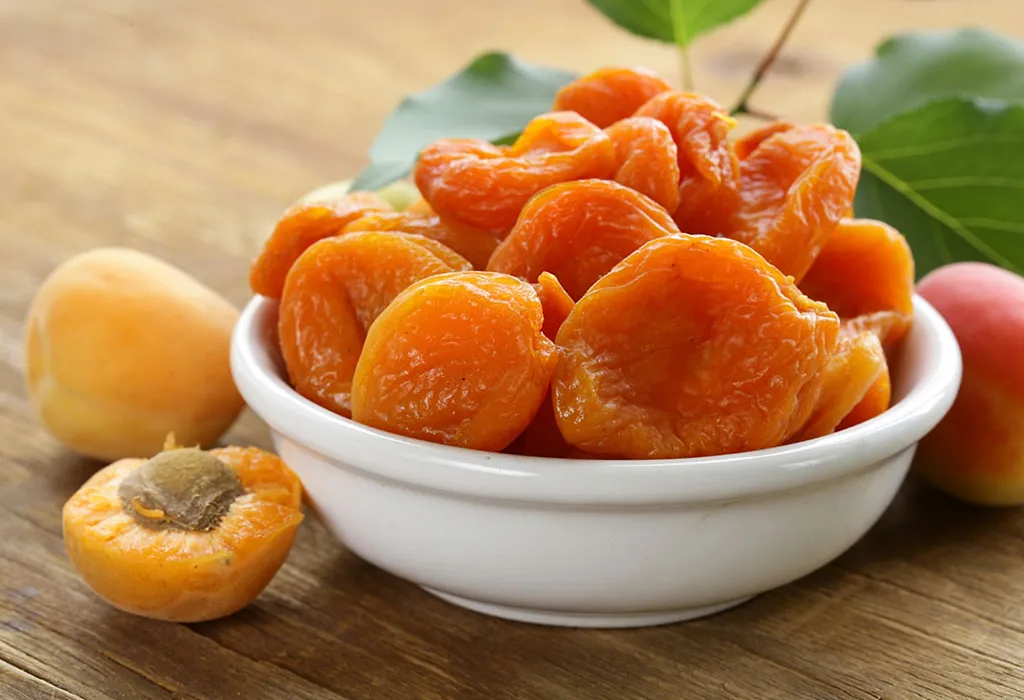
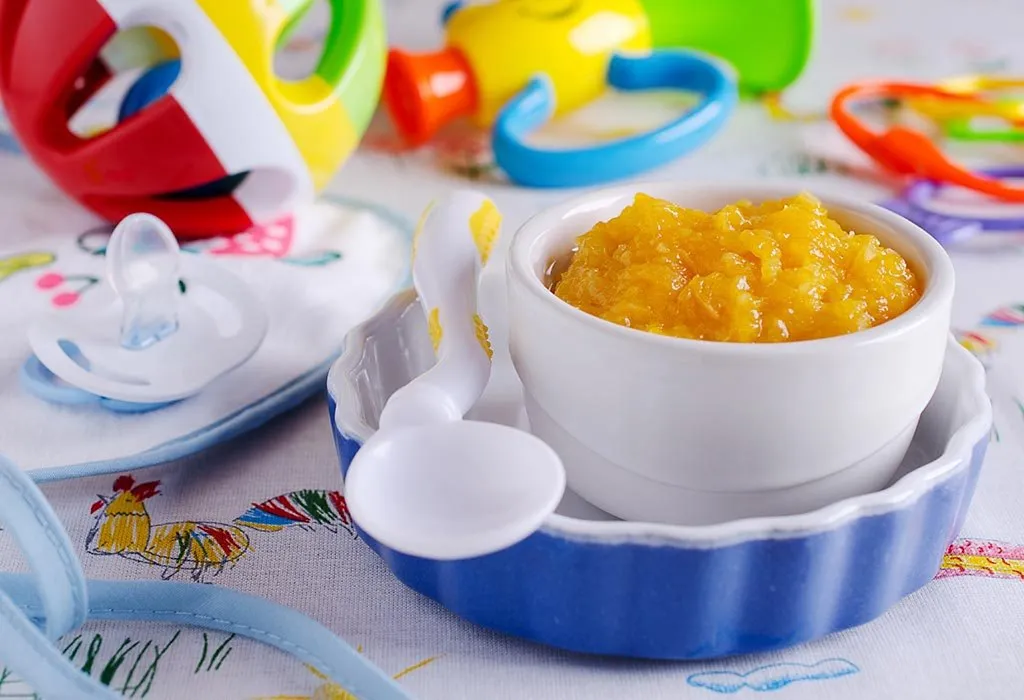
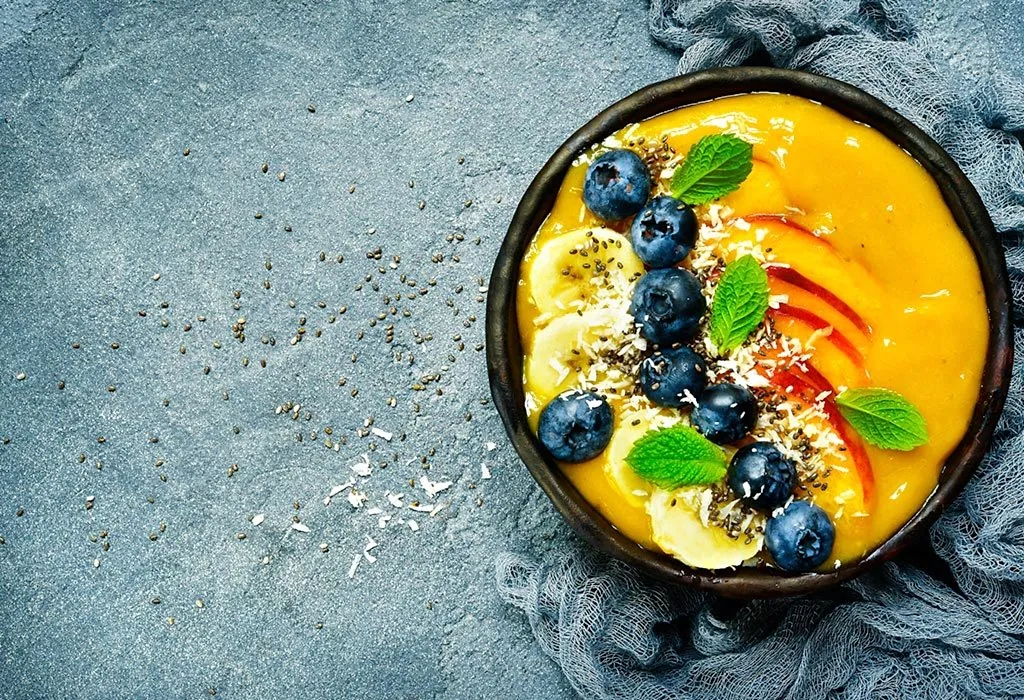



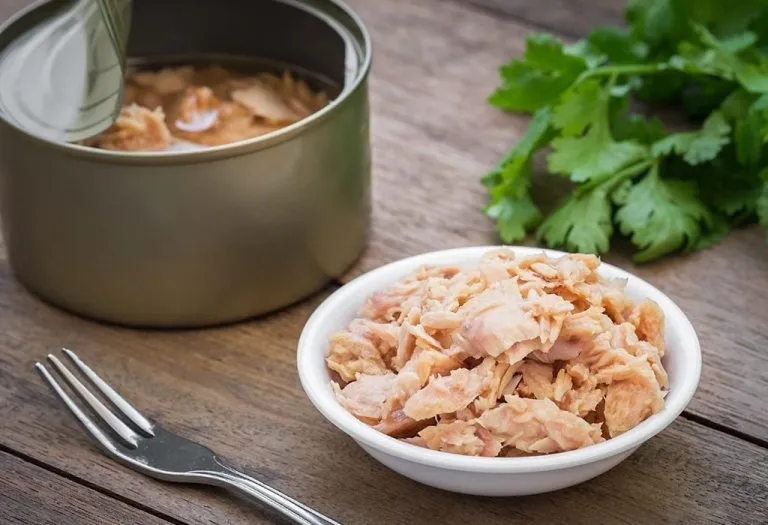
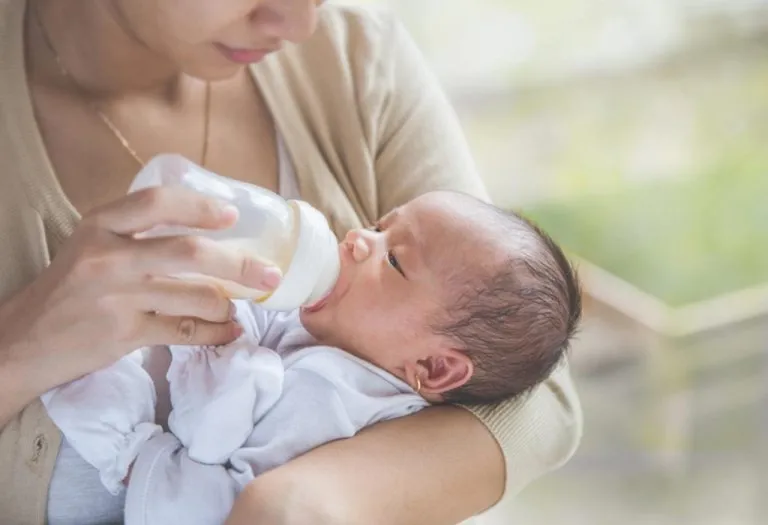
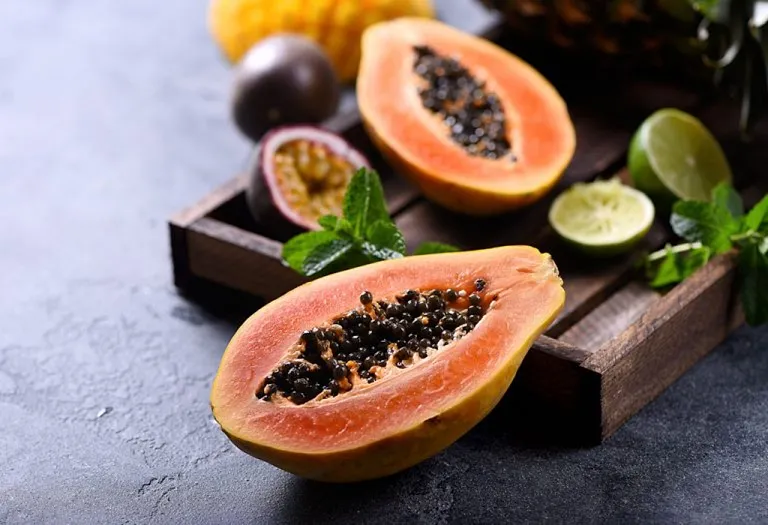

.svg)


















